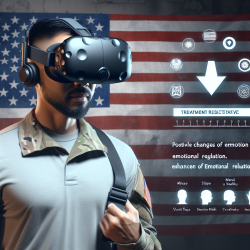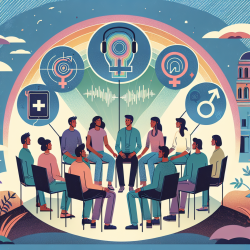Introduction
In the realm of education, particularly in clinical exams, the influence of racial stereotypes can have profound implications. A recent study titled A randomised trial of the influence of racial stereotype bias on examiners’ scores, feedback and recollections in undergraduate clinical exams delves into this issue. This research provides valuable insights for practitioners seeking to improve their skills and ensure fairness in educational assessments.
Understanding the Research
The study investigates whether racial stereotypes affect examiners' scores, feedback, and memories of student performances. It specifically examines the activation of stereotypes related to British Asian students during clinical exams. The research uses a double-blinded, randomized controlled trial with videos of medical student performances to assess the impact of stereotypes on examiner judgments.
Key Findings
- Examiners showed faster response times to stereotype-related words, indicating stereotype activation.
- Despite stereotype activation, there was no significant influence on examiners' scores or feedback.
- Examiners' memories of performances were not biased by stereotypes.
These findings suggest that while stereotypes are activated, they do not necessarily translate into biased judgments in clinical exams.
Implications for Practitioners
For educators and examiners, these findings highlight the importance of being aware of unconscious biases. Here are some steps practitioners can take to mitigate potential bias:
- Awareness and Training: Engage in regular training on unconscious bias and its impact on decision-making.
- Reflective Practice: Continuously reflect on your own judgments and seek feedback from peers to identify any potential biases.
- Standardized Criteria: Use standardized criteria for assessments to minimize subjective judgments.
- Encourage Diversity: Promote diversity within examiner panels to bring varied perspectives and reduce groupthink.
Encouraging Further Research
While this study provides valuable insights, it also opens avenues for further research. Practitioners are encouraged to explore:
- The impact of stereotype threat on student performance and ways to mitigate it.
- Longitudinal studies to assess the long-term effects of stereotype activation on educational outcomes.
- Interventions that can effectively reduce stereotype activation in educational settings.
Conclusion
The study underscores the complexity of stereotype activation and its potential impact on educational assessments. By understanding these dynamics, practitioners can work towards creating a more equitable educational environment. To read the original research paper, please follow this link: A randomised trial of the influence of racial stereotype bias on examiners’ scores, feedback and recollections in undergraduate clinical exams.










